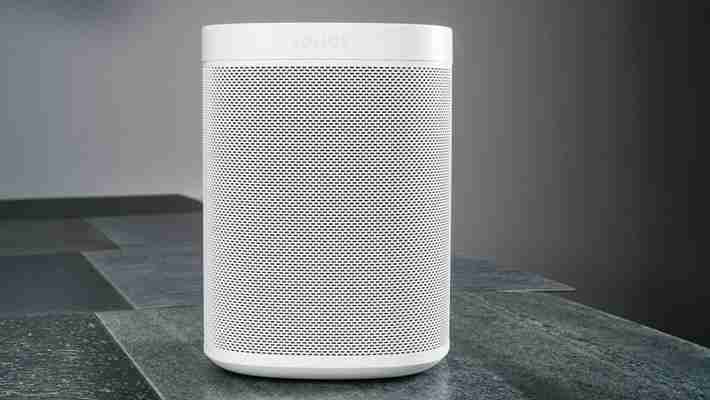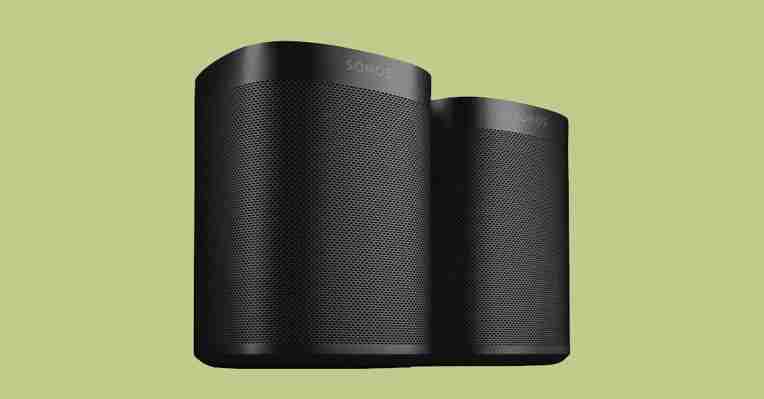8 Best Smart Speakers (2022): Alexa, Google Assistant, Siri
How to Make Your House a Smart Home
Alexa is the virtual assistant powering Amazon’s Echo products, including the Echo speaker, the miniature Echo Dot speaker and the Echo Show, a smart speaker with a touch screen. You summon it by saying “Alexa.”
If you want to quickly get started with a smart home, buying an Echo product is your best bet, because Alexa works with a broader set of smart home accessories than its rivals.
To set up your Alexa product you’ll first need to download the Alexa app onto your phone. This app allows your to add “skills” to work accessories or increase your assistant’s set of capabilities.
To find home accessories that are compatible with Alexa, look for a “Works With Alexa” logo on the packaging or in the product description.
The Best Smart Speakers for 2022
As our homes get smarter, Alexa, Google Assistant, and Siri have become our reliable digital helpers, living inside our devices and jumping at our spoken commands to set timers, play music, and teach kids how to spell those difficult homework words. Smart speakers are one of the easiest ways to use those voice assistants around your house.

But before you can choose a smart speaker, you have to pick a camp. The top choices don't work very well together and, if you want to equip multiple rooms, you should stick to a single platform. This guide explains all your options and helps you pick the best platform for your needs, along with the right smart speaker for your home.
And, if you end up getting a smart speaker with Amazon Alexa, here are some settings you should change as soon as you set it up.
How to Talk to Your Smart Speaker
Every smart speaker responds to a wake word, such as "Alexa" for Alexa, "Hey, Google" for Google, and "Siri" for Siri. Once they start listening to you, you can ask for whatever you want. The question then is how to ask.
All three voice assistants are fairly easy to talk to, but they can trip up if you don't use the proper syntax. You need to speak to Alexa in a certain way, in particular, to get the best results. This isn't a problem once you get used to the syntax, but the voice assistant too often gets confused if you use an unfamiliar term or phrase a command in an unfamiliar way.
Google Assistant and Siri are both much better at recognizing natural language and are generally less frustrating to use. Amazon continues to develop Alexa and has begun adding its A1Z neural processor to Echo speakers to help improve machine learning but, for now, Google and Apple have the edge here.
Amazon Echo Studio (Credit: Zlata Ivelva)
Using Speakers for Smart Home Management
Alexa, Google Assistant, and Siri can control pretty much any smart home device nowadays. In the Alexa and Google apps, and with the new Siri Shortcuts feature, you can set up rooms of multiple devices to control, plus configure multi-step routines, like "I'm leaving the house." All three smart assistants support most major smart home device brands, with few holes between them.
The Amazon Echo and Echo Studio add support for the Zigbee smart home standard, which means they work with more third-party devices (and other Echos in your home, as a result). Most newer smart home devices are Wi-Fi-based and hubless, or otherwise work with Alexa and Google Assistant, so you should be covered.
If you're going to use Siri to control your smart home, make sure the smart home devices you buy are HomeKit-compatible, and you have a HomePod, iPad, or Apple TV to use as a hub. These devices enable you to create rooms, groups, and multi-step routines, as well as control your devices remotely—but only from iOS. Apple's Home app is gorgeous, but you have to be all-in with Apple for it to work well.
You can also use Alexa, Google Assistant, and Siri to control a TV or home entertainment center, with a compatible TV or appropriate hardware add-on (a media streamer like an Amazon Fire TV device for Alexa, a Chromecast or Android TV for Google Assistant, an Apple TV for Siri, or a Roku device for any of them).
Google Nest Mini (Credit: Zlata Ivelva)
Third-Party Smart Speaker Skills
Amazon's voice assistant ecosystem benefits from tens of thousands of third-party "skills," and Amazon has a directory(Opens in a new window) of them on its site. These skills let you do everything; for example, you can check your local transit status, look up your credit card balance, find trivia about your favorite college football team, play games, and sing along with songs. However, you have to seek out the skills you want and stick to a very specific syntax. It's a stunningly powerful system but involves a bit of a learning curve.
Google Assistant has fewer skills, but they're steadily growing in number. It tends to accept more free-form conversation rather than demanding specific word-for-word syntax, making it easier to use. You can check out Google's skills (which it calls "actions") in its convenient web-based directory(Opens in a new window).
Using Smart Speakers for Phone Calls
All of the voice assistants let you make phone calls from your smart speaker. Alexa and Google make free phone calls directly. Google Assistant can call numbers in the US and Canada through Google Duo. Alexa can call anyone in the US, Canada, and Mexico, but not toll-free numbers. You can also use the HomePod as a speakerphone, but you have to start the call on your phone.
How Do Smart Speakers Sound?
All smart speakers can play music from your phone but, if you're relying only on voice commands, you are stuck with cloud services. Alexa and Google Assistant both connect to Spotify Premium accounts, as well as to Pandora, TuneIn, and iHeartRadio for free. Alexa speakers also play Amazon Prime Music. Google Assistant speakers can play YouTube music, Apple Music, Spotify, Pandora, and others. Siri on the HomePod and HomePod mini can play Apple Music and songs from your Apple Music account. For any of these services, you can just ask the smart speaker to start playing music from them.
Apple HomePod mini (Credit: Tim Gideon)
Most smart speakers also support Bluetooth connections so you can stream audio directly from your phone, tablet, or computer. Several also feature 3.5mm ports, though some are output-only (for connecting tiny smart speakers to larger, non-smart speakers).
The Google Nest Mini and Amazon Echo Dot have both made big strides in sound quality, but they still can't really fill a room and aren't quite good enough to be primary music speakers. As mentioned, you can use them to control better speakers.
The Echo, HomePod mini, and Nest Audio sound notably better, as do most smart speakers in the $100 to $200 price range. The best value on this list is currently the $200 Echo Studio, which sounds just as good as speakers that cost twice as much.
The Right Smart Speaker for You
For now, we consider Google Assistant to be the best voice assistant for smart speakers. Amazon has more third-party skills, but Google is built into all Android phones and is better at understanding natural-language queries; that makes a big difference.
Whatever voice assistant you go with, you must consider size, power, and price. After all, chances are you're shopping for a smart speaker because you want to listen to music through it.
And, if you want video support as well, there are always smart displays, which are basically smart speakers with touch screens.
8 Best Smart Speakers (2022): Alexa, Google Assistant, Siri
Connects to Alexa

The Echo Show 10 is a great Alexa-powered alternative to the Nest Hub Max. It's more usable than third-party Alexa devices because it can call and network with Amazon's other Echo speakers. This version looks much nicer than the first few generations of Echo Shows you may have seen, with a full-sized 10-inch screen that swivels nearly 360 degrees to follow you with its cameras while you're on a call or reading a recipe—like a cool robot assistant.
The screen lets you see what music is playing, pause the audio, skip to the next song, and view lyrics on some Amazon Music tracks. It can also play Amazon Prime videos and has a video version of Alexa’s daily flash-news briefing. Voice and video calls are supported, with Amazon recently adding Zoom support.
Best Mini Speaker
Amazon Echo Dot (4th Gen) With Clock
Amazon Echo Dot With Clock (4th Gen) Photograph: Amazon
Connects to Amazon Alexa
If you aren’t in it for the music, the Amazon Echo Dot With Clock (4th Gen) and Google's Nest Mini (7/10, WIRED Recommends) will give you most of the perks of owning a smart speaker, and you can use them to smarten up existing speakers on the cheap.
The sound is very similar between models, and they have nearly identical footprints, so you can easily make an argument that one is better than the other based on the ecosystem alone. We used to prefer the Nest Mini for this reason, but now that Amazon has added a simple clock to the front of the Echo Dot, we like the Alexa-powered option a little better.
The tiny display on the Echo Dot With Clock comes in handy. It can tell you when your timers are going to expire in the kitchen or when your alarm is set for the morning. Of course, it tells the time too. That makes it a better bedroom and kitchen companion. You can also ask it the weather, have it answer your random questions, and play white noise at bedtime to help you sleep. It also presents an easy way to get a smart assistant into the places in your home where you don't normally listen to music.
★ Another Alternative: The Nest Mini ($49) is also a great mini speaker if you prefer Google Assistant. It's usually on sale for $25, making it one of the most affordable smart speakers out there. It can do everything the Nest Audio can do, though its sound quality is nothing to write home about.
Best Portable Speaker
Sonos Roam
